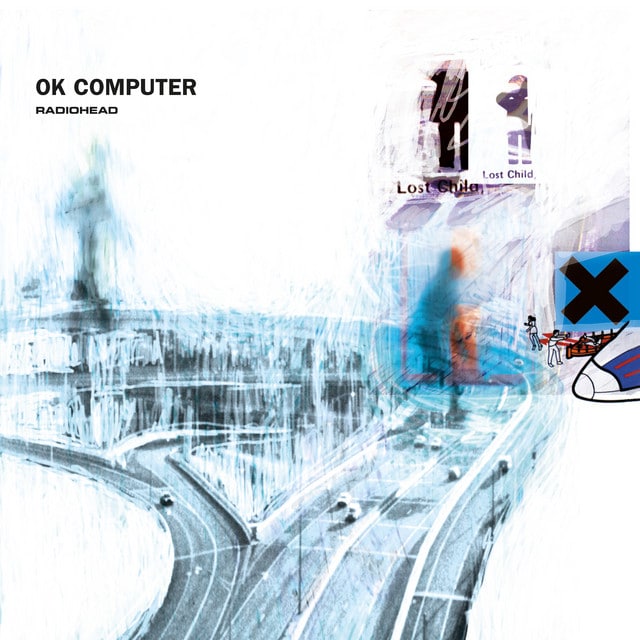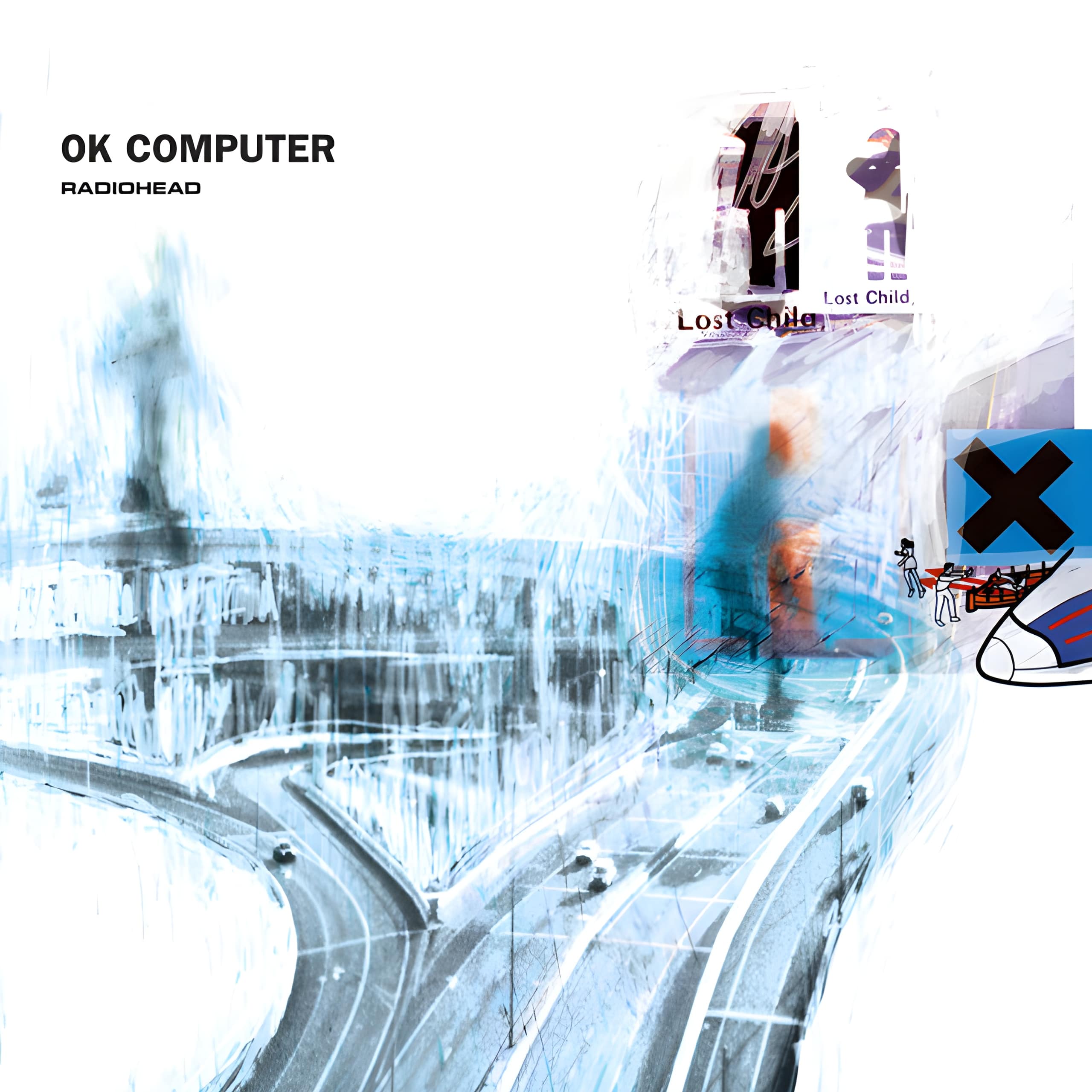Released: 1997
“Karma Police” by Radiohead is a haunting track from their 1997 album “OK Computer.” The song delves into themes of retribution and the existential crisis, wrapped in metaphoric lyrics and an atmospheric tune. Its vivid imagery and the refrain of “this is what you’ll get when you mess with us” serve to communicate a solemn warning against wrongdoing, backed by the omnipresent, albeit abstract, concept of the “karma police.”
The opening lines, “Karma police, arrest this man, he talks in maths, he buzzes like a fridge, he’s like a detuned radio,” set a surreal tone. The “karma police” is a metaphorical force invoking cosmic justice or retribution against those who’ve wronged. Describing someone as talking “in maths” and buzzing “like a fridge” conjures an image of a person who is both alienating and annoying, perhaps too logical or emotionless. “A detuned radio” gives off a sense of distorted or unclear communication, suggesting a disconnect from the world.
Moving to the second verse, “Karma police, arrest this girl, her Hitler hairdo is making me feel ill and we have crashed her party.” This verse jumps sharply into a depiction of judgment based on appearance and actions. The “Hitler hairdo” is a stark, jarring image, immediately evoking negative connotations and a sense of authoritarianism or control. Crashing her party can be seen as an intrusion into her world, disrupting what she holds dear as payback.
The chorus, “This is what you’ll get, this is what you’ll get, this is what you’ll get, when you mess with us,” serves as a powerful mantra. It’s a declaration of the consequences one faces when crossing an invisible moral line, emphasizing the theme of karma or cosmic justice. The repetition adds to the ominous warning, reinforcing the idea of inescapable retribution.
The lines, “Karma police, I’ve given all I can, it’s not enough, I’ve given all I can, but we’re still on the payroll,” reveal a sense of frustration and resignation. It highlights the struggle and the feeling that regardless of how much effort one puts into doing right or seeking justice, it’s never enough, and one is trapped in a cycle of never-ending duty or obligation (“still on the payroll”).
Finally, “For a minute there, I lost myself, I lost myself, Phew, for a minute there, I lost myself, I lost myself” speaks volumes about the human condition. It’s a moment of existential crisis, acknowledging how easy it is to lose one’s sense of identity or purpose amidst the chaos and complexities of life. The repetition and the sigh of “Phew” express relief at coming back from such a brink.
In essence, Radiohead’s “Karma Police” is a beautifully complex narrative of moral policing, consequence, and self-discovery. Through its cryptic lyrics and atmospheric sound, it prompts listeners to reflect on their actions and place in the world, all while underlining the sometimes oppressive weight of seeking justice and understanding.








